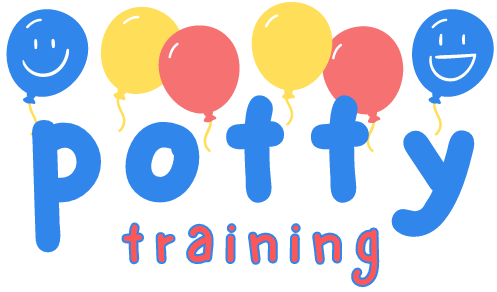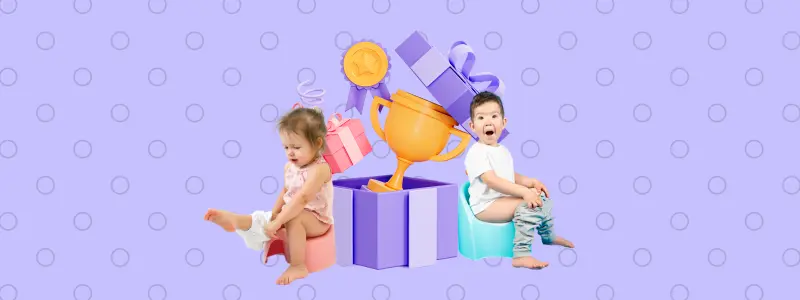If you’re a parent who’s starting to potty train your child, you’ve probably heard about using rewards to encourage them. In this article, we’ll discuss the benefits and downsides of using rewards, look at other approaches, give you practical tips for using rewards effectively, and answer some common questions. Let’s get started!
🌟Benefits of Using Rewards
Potty training can be a challenging milestone for both parents and children, and rewards can serve as powerful incentives to encourage desired behavior. Here are some reasons why rewards can be effective:
Encourages Positive Behavior: Offering rewards for using the potty reinforces the idea that using the toilet is a positive and desirable behavior.
Provides Motivation for Children: Children are motivated by rewards, whether it’s a sticker, a small toy, or verbal praise from parents.
Reinforces Learning: Rewards help children associate using the potty with a positive outcome, reinforcing the learning process.
❌Drawbacks of Using Rewards
While rewards can be effective, it’s essential to consider the potential drawbacks:
Dependency on Rewards: Some children may become reliant on rewards to use the potty, leading to challenges when trying to phase out rewards.
Lack of Intrinsic Motivation: Relying too heavily on external rewards may undermine a child’s intrinsic motivation to use the potty independently.
Potential for Bribery: Overusing or misusing rewards can start to feel like bribery, which might not be the best approach for fostering positive behavior in the long run because it can make a child less likely to do something unless they get something in exchange.
🤔At this point you might be confuse about the pros and cons of giving rewards and how to strike a balance. My view is that any approach can have good or bad outcomes depending on how it’s used. If we overuse rewards or give extravagant gifts that are hard to keep up with, it can have a negative impact. However, if we stick to simple rewards, like verbal praise or a small pack of M&Ms, and gradually phase them out over time, it’s a much better approach.
Alternatives to Potty Training Rewards

While rewards can be a useful tool in potty training, they’re not the only option. Here are some alternative approaches to consider:
↪Praise and Encouragement: Offering verbal praise and encouragement when your child uses the potty can be just as effective as tangible rewards. Simple phrases like “Great job!” or “I’m so proud of you!” can go a long way in reinforcing positive behavior.
↪Consistency and Routine: Establishing a consistent potty training routine can help your child develop good habits. Set regular potty breaks throughout the day and stick to them, even if your child doesn’t always need to go.
↪Setting Realistic Expectations: Understand that accidents are a normal part of the potty training process. Instead of getting frustrated, reassure your child that it’s okay to make mistakes and offer gentle guidance.
↪Using Positive Reinforcement Techniques: Positive reinforcement involves rewarding desired behaviors with attention, praise, or privileges. Instead of focusing solely on rewards for using the potty, praise your child for showing signs of readiness or for making progress, such as telling you when they need to go.
How to Implement Rewards in Potty Training
If you’ve decided to use rewards in your potty training journey, here are some tips for implementing them effectively:
Choosing Appropriate Rewards:
Select rewards that are age-appropriate and motivating for your child. For younger children, stickers or small toys may be exciting incentives, while older children may prefer privileges like extra playtime or special activities.
Setting Clear Expectations:
Clearly communicate what your child needs to do to earn the reward. Whether it’s using the potty independently, staying dry for a certain period, or showing progress, make sure your child understands what is expected of them.
Establishing a Reward System:
Create a simple and consistent reward system that your child can easily understand. This could involve earning stickers for each successful trip to the potty or working towards a larger reward after a certain number of successes.
Consistency in Rewarding Desired Behavior:
Be consistent in rewarding your child for using the potty or showing progress. Make sure to praise and reward them immediately after they demonstrate the desired behavior to reinforce the connection between the action and the reward.
Addressing Common Concerns
What if they only want the reward?:
It’s natural for children to be motivated by rewards, but it’s essential to reinforce positive behavior with praise and encouragement as well. Emphasize the importance of using the potty as a regular part of growing up, rather than solely focusing on the reward.
How do we stop giving rewards later?:
Gradually transition away from tangible rewards as your child becomes more independent in their potty training. Instead of offering treats or prizes, praise them for verbal affirmations or other forms of positive reinforcement.
Can rewards mess with how kids think about using the potty?:
While rewards can be effective in motivating children to use the potty, it’s crucial to balance them with other forms of positive reinforcement. Encourage your child to take pride in their accomplishments and celebrate their successes without relying solely on external rewards.
What if my child has accidents after being potty trained?:
Accidents are a normal part of the learning process, and it’s essential to respond to them calmly and positively. Avoid shaming or punishing your child for accidents and instead offer reassurance and support as they continue to learn and develop.
How long does potty training usually take?:
Every child is different, and there is no one-size-fits-all answer to this question. Potty training can take anywhere from a few weeks to several months, depending on factors like your child’s readiness, consistency, and individual development.
What Experts Say
It’s always helpful to consider the opinions and insights of experts when exploring parenting strategies like potty training rewards. Let’s take a look at what some child development specialists and parenting experts have to say:
Child Psychologists:
Many child psychologists believe that rewards can be a useful tool in potty training, particularly for younger children who may benefit from immediate reinforcement of desired behaviors. They emphasize the importance of using rewards and other positive reinforcement techniques to promote long-term success.
Parenting Experts:
Some parenting experts advocate for a balanced approach to potty training rewards, emphasizing the importance of praise and encouragement alongside tangible rewards. They suggest using rewards selectively and gradually phasing them out as children become more independent in their potty training journey.
Pediatricians:
Pediatricians generally support the use of rewards in potty training but caution against relying too heavily on external incentives. They encourage parents to focus on creating a supportive and encouraging environment that promotes positive attitudes toward using the potty.
Stories from Real Parents

Sometimes, hearing about other parents’ experiences with potty training rewards can provide valuable insights and inspiration. Let’s explore some real-life stories and anecdotes from parents who have navigated the potty training journey:
⭐Sarah’s Story: Sarah, a mother of two, found that using a sticker chart was a game-changer in potty training her youngest child. She noticed that her daughter was excited to add stickers to the chart after each successful trip to the potty, and the visual reinforcement helped keep her motivated throughout the process.
⭐Mark’s Experience: Mark’s son was initially hesitant about using the potty, but introducing a reward jar filled with small toys and treats made a significant difference. Mark and his wife celebrated each milestone with their son, and the anticipation of earning rewards helped him overcome his apprehensions about using the potty.
⭐Emily’s Journey: Emily decided to forgo tangible rewards altogether and instead focused on showering her daughter with praise and encouragement. She found that her daughter responded well to verbal affirmations and thrived on the positive reinforcement, ultimately becoming fully potty trained without the need for external incentives.
Wrapping It Up❤️
In conclusion, the use of rewards in potty training can be a helpful tool for motivating children and reinforcing positive behavior. However, it’s essential to approach rewards thoughtfully and consider their potential impact on children’s intrinsic motivation and long-term development.
By weighing the pros and cons, exploring alternative approaches, and considering expert opinions, parents can make informed decisions about whether and how to incorporate rewards into their potty training routine. Whether you choose to use rewards or opt for alternative methods, the key is to create a supportive and encouraging environment that promotes positive attitudes toward using the potty.
Remember, every child is unique, and there’s no one-size-fits-all approach to potty training. Trust your instincts, be patient, and celebrate each small victory along the way. With time, consistency, and plenty of encouragement, your child will successfully master this important milestone.
FAQs
What if they only want the reward?
It’s natural for children to be motivated by rewards, but it’s essential to reinforce positive behavior with praise and encouragement as well. Emphasize the importance of using the potty as a regular part of growing up, rather than solely focusing on the reward.
How do we stop giving rewards later?
Gradually transition away from tangible rewards as your child becomes more independent in their potty training. Instead of offering treats or prizes, praise them for verbal affirmations or other forms of positive reinforcement.
Can rewards mess with how kids think about using the potty?
While rewards can be effective in motivating children to use the potty, it’s crucial to balance them with other forms of positive reinforcement. Encourage your child to take pride in their accomplishments and celebrate their successes without relying solely on external rewards.
What if my child has accidents after being potty trained?
Accidents are a normal part of the learning process, and it’s essential to respond to them calmly and positively. Avoid shaming or punishing your child for accidents and instead offer reassurance and support as they continue to learn and develop.
How long does potty training usually take?
Every child is different, so there’s no one-size-fits-all answer to this question. Potty training can take anywhere from a few weeks to several months, depending on factors like your child’s readiness, consistency, and individual development.

